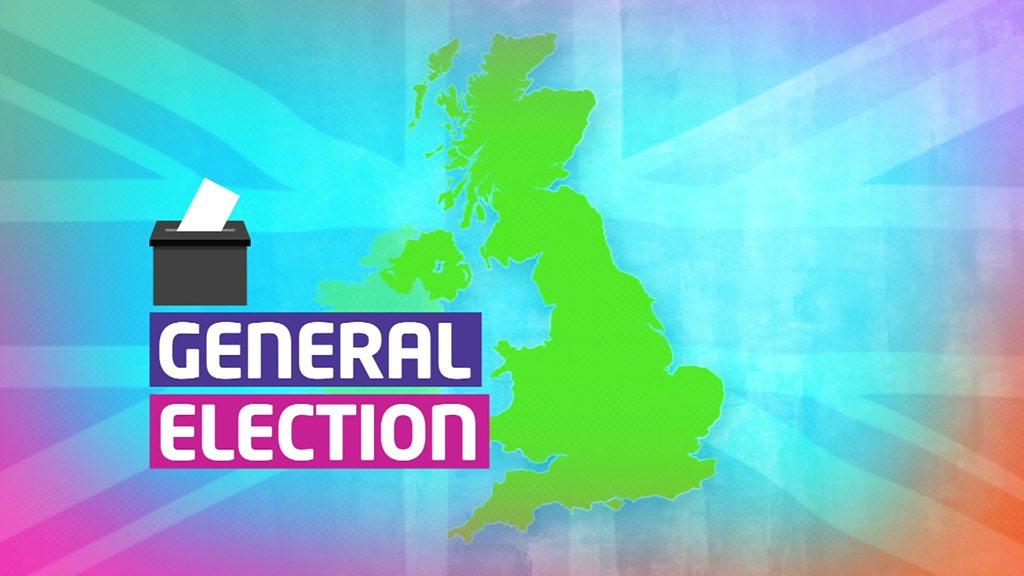French election 2022: How does it work and who are the frontrunners?
- Published
- comments
Shanequa speaks to children in France ahead of the election
France will vote today to finally decide who will become its next president.
An election in a neighbouring country like France is always a big deal because the decision will influence how that country acts, which could affect everyone around them.
Current French President Emmanuel Macron won the first round of the election earlier in April, but it's not over yet - it's now down to the final two candidates.
Mr Macron will battle it out with rival politician Marine Le Pen in a second round of voting taking place today.
So, who are the two people who might lead France, and how does this election work? Read on to find out.
How do French presidential elections work?
WATCH: Why are the French elections important?
In France there are usually two rounds of voting for a president to lead the country.
In the first round there are lots of candidates, and if no one gets more than half the vote then the top two popular politicians go through to the second round.
Nobody has won more than half the votes to become president after the first round since the current voting system was introduced 50 years ago.
Emmanuel Macron, the current president, is hoping to secure his second five-year term in office.
Marine Le Pen is his closest rival, and not for the first time - they both went head-to-head at the last election in 2017 too.
Who is Emmanuel Macron?
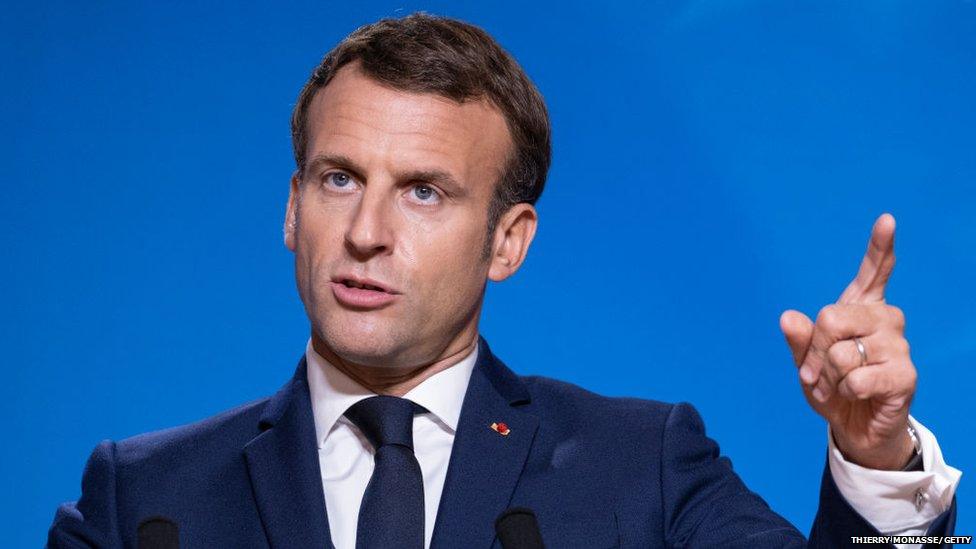
Emmanuel Macron is the current President of France.
He became the country's youngest ever leader when he won in 2017, at the age of 39.
He created his party, La République En Marche! (which means Republic on the Move!) in 2016.
He won the 2017 election with two thirds of the vote. He promised to get more people into work and invest more money in renewable energy sources.
Many people in France feel he hasn't delivered on all of his promises - there were big protests against his government and the rising cost of things like fuel for cars.
He hasn't done much campaigning this year, or appeared in any televised debates. He says he's been focusing on the French response to the war in Ukraine, but his opponents think he's using the war to avoid going head-to-head with them.
Who is Marine Le Pen?
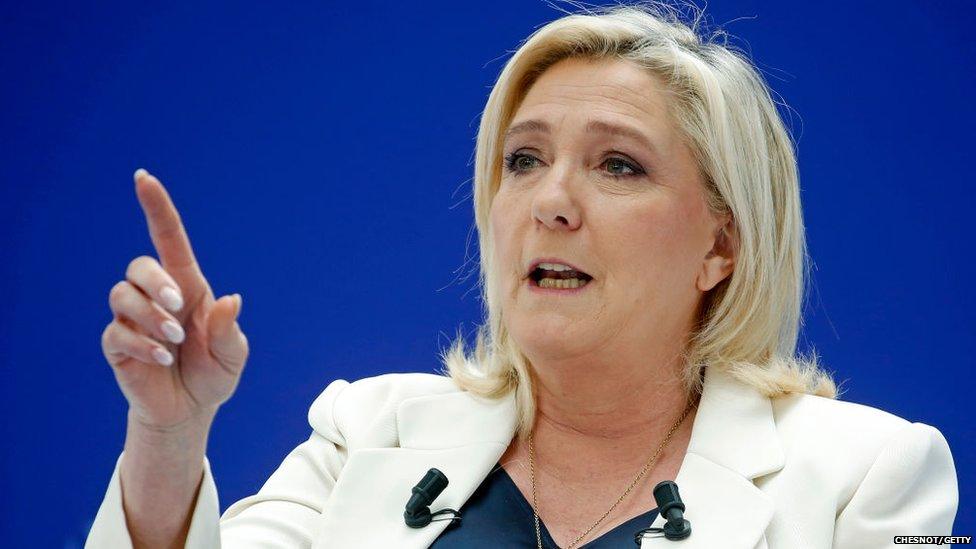
She's running for a party called Rassemblement National, or National Rally, which is a new name she gave it after losing the 2017 election. It was originally called Front National, and was founded by her father, Jean-Marie Le Pen, in the 1970s.
She's popular with some French voters because she's promised to help French people with the cost of things like their supermarket shop and petrol, and promised to lower taxes for young people.
Marin Le Pen is also very popular with people who are worried about immigration. Immigration is when someone moves from one country to live in another one.
She wants to have a referendum on the subject, as well as prioritising jobs and benefits for people born in France.
A referendum is a vote in which all adults can take part, normally giving a "Yes" or "No" answer to a question.
Whichever side gets more than half of the votes wins.
Another policy of hers is to ban the headscarves that some Muslim women wear, called hijabs, from all public spaces in the country.
People who oppose her, say her policies are extreme and she has been accused of racism.
In the past, she was also seen as being close to Russia's president Vladimir Putin.
What happened in the first round?
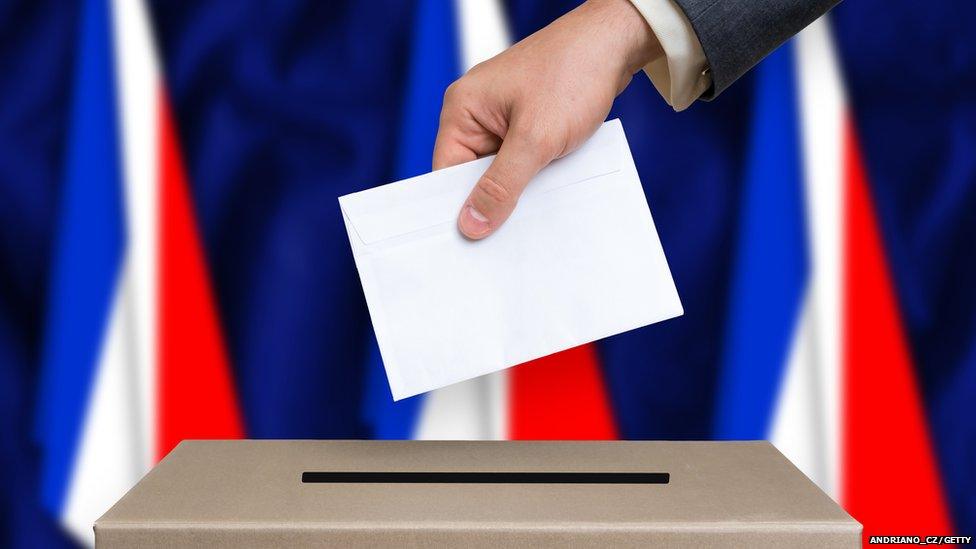
Emmanuel Macron won the first round of the French election with 27.6% of the votes, just ahead of his rival Marine Le Pen who got 23.41% of the votes.
"Make no mistake, nothing is decided," he told cheering supporters.
Ms Le Pen called on every non-Macron voter to join her and "put France back in order".
In the end, Mr Macron won a convincing first-round victory, but opinion polls suggest the next round could be much closer.
- Published21 March 2022
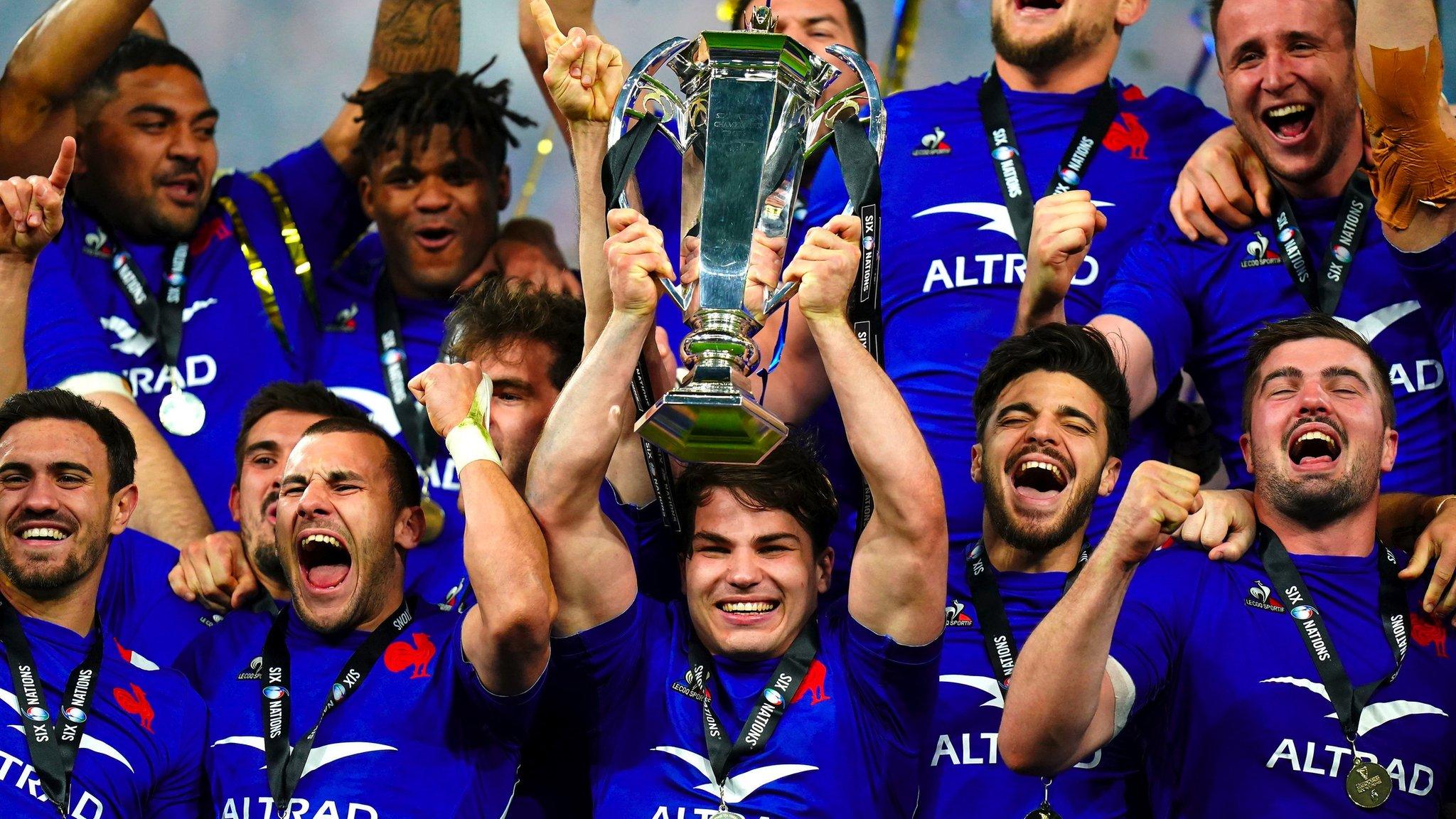
- Published16 November 2021
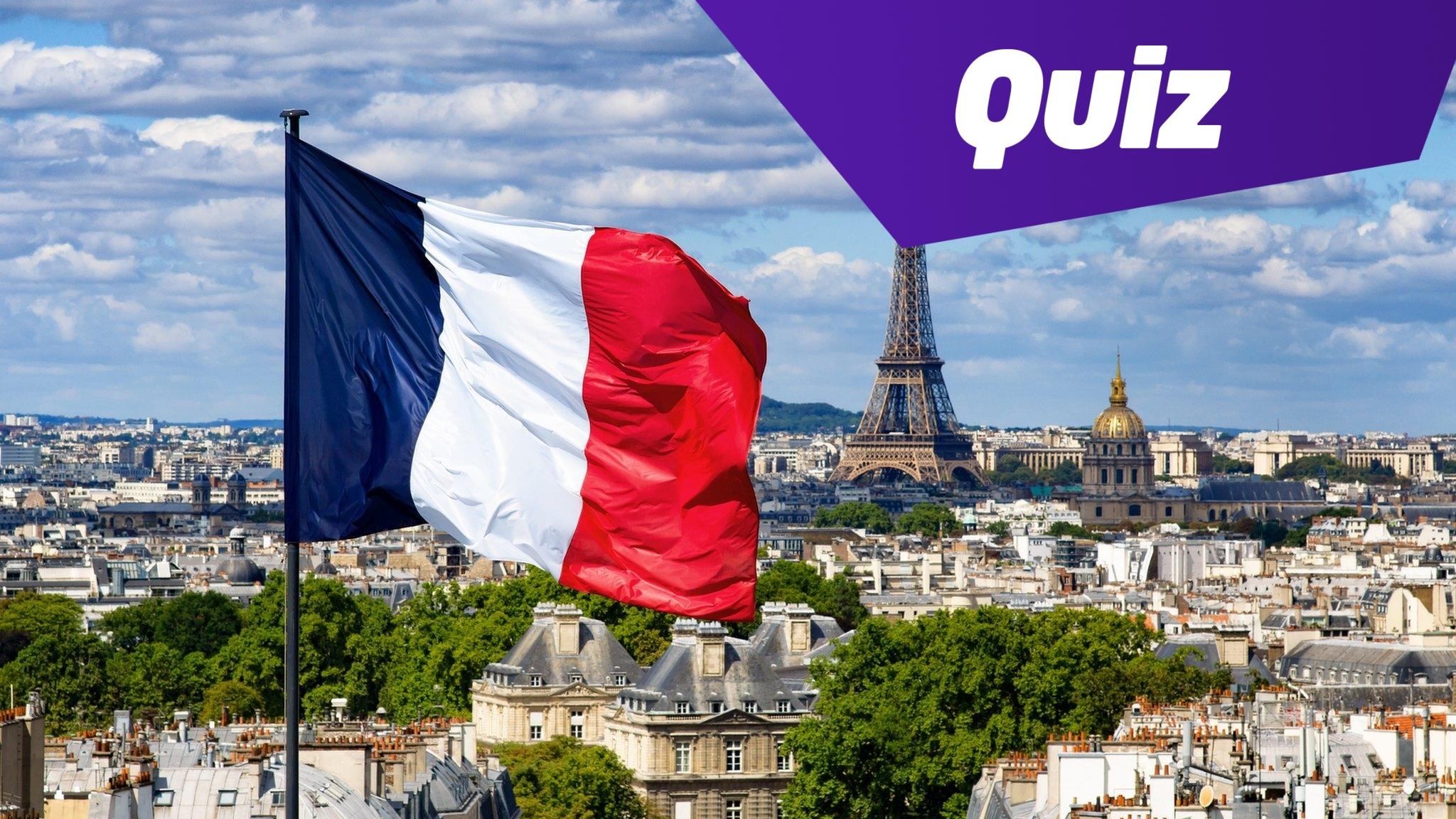
- Published3 December 2019
